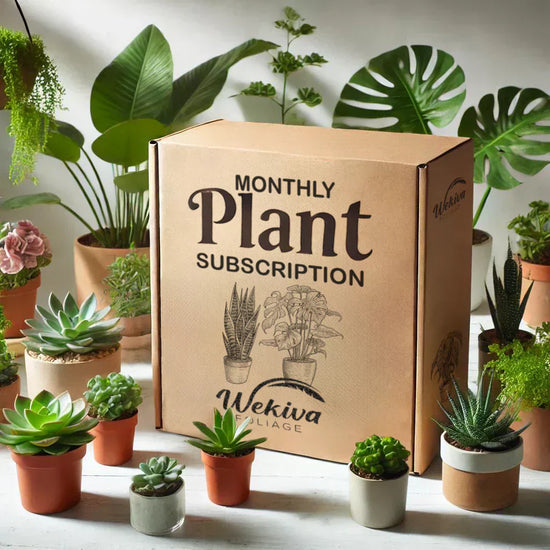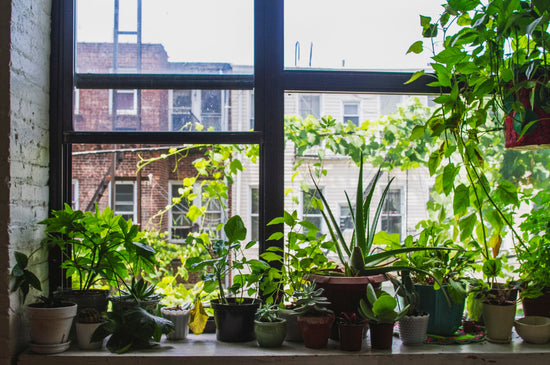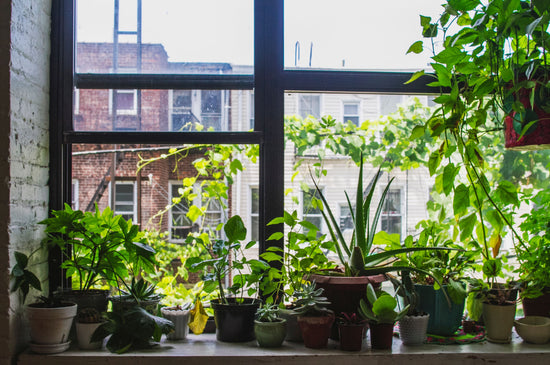Are Houseplant Bugs Dangerous?
Houseplants bring life and beauty to indoor spaces, but they can occasionally attract unwanted pests. While most houseplant bugs are more of a nuisance than a serious threat, some infestations can harm your plants or create discomfort in your home. Understanding these pests and how to manage them is key to keeping your indoor plants healthy and thriving.
Common Houseplant Bugs and Their Risks
Houseplant pests vary in behavior and impact. Below are some of the most common bugs found on indoor plants and whether they pose any danger.
-
Spider Mites
- Appearance: Tiny, spider-like pests that form webbing on plant leaves.
- Impact: They suck sap from leaves, causing yellowing and leaf drop. While not harmful to humans, they can quickly weaken plants like the peace lily.
-
Fungus Gnats
- Appearance: Small, dark flies often seen hovering around soil.
- Impact: Harmless to humans but their larvae can damage plant roots. Overwatered plants, such as Christmas cactus, are particularly susceptible.
-
Mealybugs
- Appearance: White, cottony masses on leaves and stems.
- Impact: They weaken plants by feeding on sap and excreting sticky honeydew, which can lead to sooty mold. Plants like satin pothos are common targets.
-
Scale Insects
- Appearance: Small, brown or tan oval-shaped pests that stick to stems and leaves.
- Impact: Their sap-sucking habits weaken plants like the ZZ plant, potentially leading to stunted growth.
-
Aphids
- Appearance: Tiny green, black, or yellow bugs clustered on new growth.
- Impact: They can spread diseases between plants and are particularly harmful to new shoots.
Are Houseplant Bugs Dangerous to Humans?
Most houseplant bugs, including spider mites and fungus gnats, are not dangerous to humans. They don’t bite, sting, or transmit diseases, but their presence can be annoying. Allergic reactions to their waste or bodies are rare but possible. The primary concern is the damage these pests can cause to your plants.
How to Prevent and Control Houseplant Pests
-
Inspect New Plants
- Always check for signs of pests before bringing new plants home. For instance, inspect your spider plant for pests on the undersides of leaves and in the soil.
-
Quarantine New Arrivals
- Keep new plants, like the Zanzibar Gem Plant (ZZ Plant), isolated for a few weeks to ensure they’re pest-free.
-
Water Wisely
- Overwatering encourages pests like fungus gnats. Ensure proper drainage for plants such as pothos epipremnum.
-
Clean Leaves Regularly
- Wipe down the leaves of your spider plant chlorophytum comosum to remove dust and discourage pests from settling.
-
Use Natural Remedies
- Neem oil or insecticidal soap can effectively control pests without harming your plants or the environment.
-
Repot If Necessary
- For severe infestations, repot your indoor houseplants using fresh soil and a clean planter.
FAQs About Houseplant Bugs
Q: How can I tell if my indoor plant has pests?
A: Look for sticky residues, webbing, yellowing leaves, or small bugs on the plant or soil surface.
Q: Can houseplant bugs spread to outdoor plants?
A: Some pests can move between indoor and outdoor plants, especially during warmer months.
Q: Are there pest-resistant houseplants?
A: Yes. Hardy plants like the snake plant and zamioculcas plant (ZZ Plant) are less likely to attract pests.
Q: How do I prevent fungus gnats?
A: Allow the soil to dry out between waterings, and use sticky traps to capture adult gnats.
Q: Can pest infestations kill indoor plants?
A: Yes. Severe infestations can weaken or kill plants if not treated promptly.
By staying vigilant and proactive, you can keep your indoor plants healthy and free of pests. Whether you're caring for a pothos epipremnum or a spider plant, proper care and prevention techniques can ensure your plants thrive in any environment.





